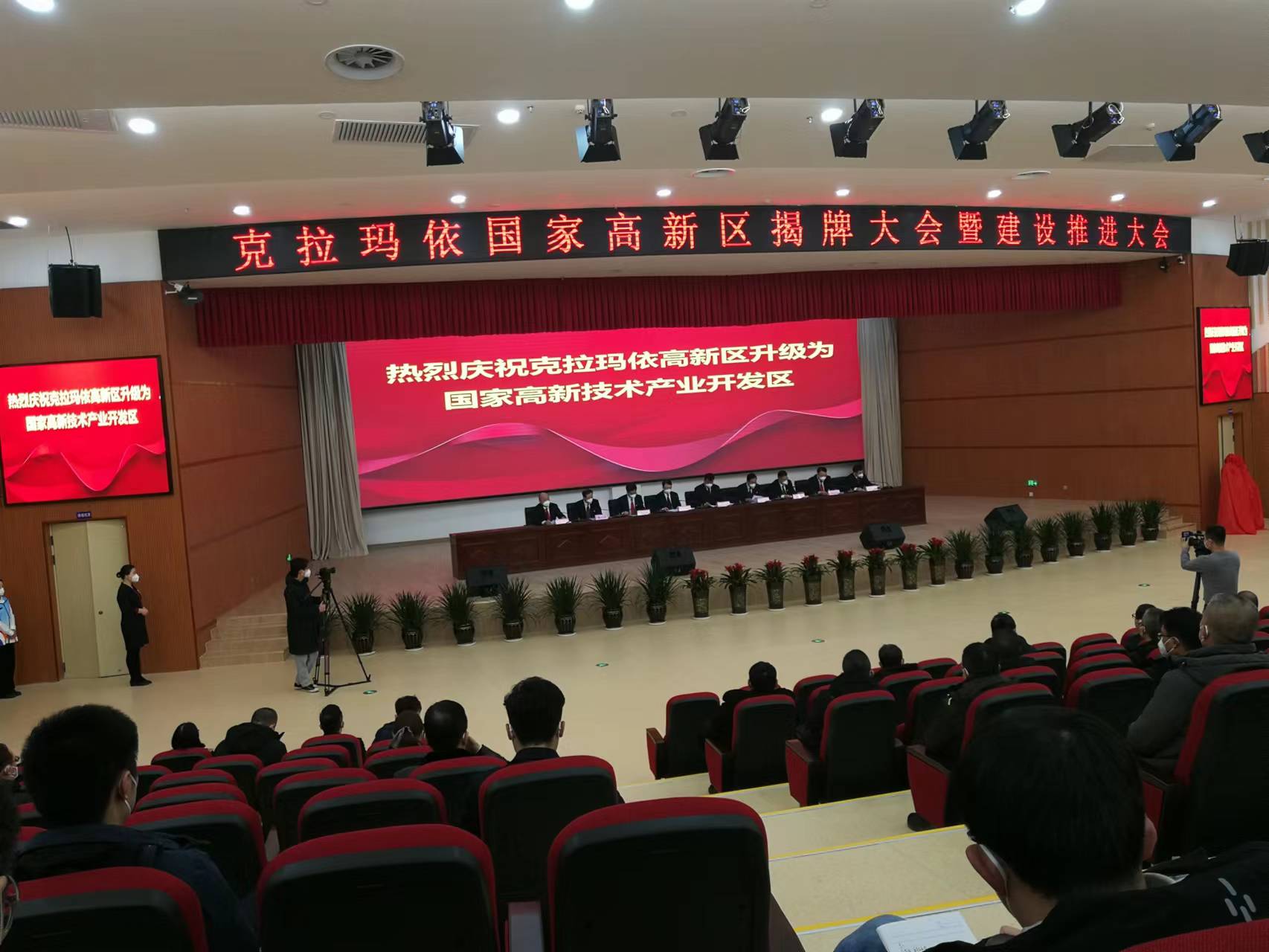By?Staff?Reporters
A ceremony was held on December 20 to officially inaugurate the Karamay National High-tech Industrial Development Zone (KNHZ) in northwest China's Xinjiang Uygur Autonomous Region, which was elevated to a state-level high-tech zone by the State Council in June.

(PHOTO?taken?at?the?ceremony?by?ZHU?Tong?from?S&T?Daily)
As Xinjiang's fourth national high-tech zone, KNHZ has formed a diversified industrial system with the petrochemical industry as the core, and oil & gas technical service and high-end equipment manufacturing as two essential sectors. Its development of new energy and digital economy is also gaining momentum.
In the traditional petrochemical industry, KNHZ has built a million-ton high-grade lubricating oil production base, a world-class naphthenic lubricating oil production base, and the largest high-grade white oil production base in China.
It has successfully tackled technical problems in the processing and exploitation of low-quality heavy oil in the energy and chemical industry, accelerated the development of clean and efficient energy, and increased the added value of petrochemical products.
In terms of the digital economy, KNHZ has made bold attempts to promote the deep integration of informatization with industrialization. The Xinjiang Central Asia Commodity Exchange Center in the zone has successfully launched the country's first direct wholesale business of refined oil products, with a cumulative transaction value of more than 20 billion RMB.
As a national high-tech enterprise, Jinniu Energy Internet of Things (IoT) Co., Ltd. has established the only oilfield IoT engineering and research center in Xinjiang, and its remote intelligent operation and maintenance system for IoT equipment has been selected as the national new-type IT demonstration project.
Since 2019, KNHZ has established databases to provide services for high-tech enterprises and sci-tech innovation projects. Seventy-two enterprises have benefited from the all-round, whole-process and multi-level targeted services, and 39 sci-tech projects have been approved.
In the next step, the zone will continue to focus on developing industrial clusters, promoting the integration of industry and city, and opening its arms to deepen cooperation, so as to build itself into a demonstration area for innovation-driven high-quality development in Xinjiang and western China as a whole.
The trio will conduct a series of experiments in fields such as life science, fluid physics, combustion science and materials science. Notably, this is the first time that fruit flies have been taken on a Chinese space mission as experimental subjects. What made scientists choose fruit flies? What experiment will they undergo?
